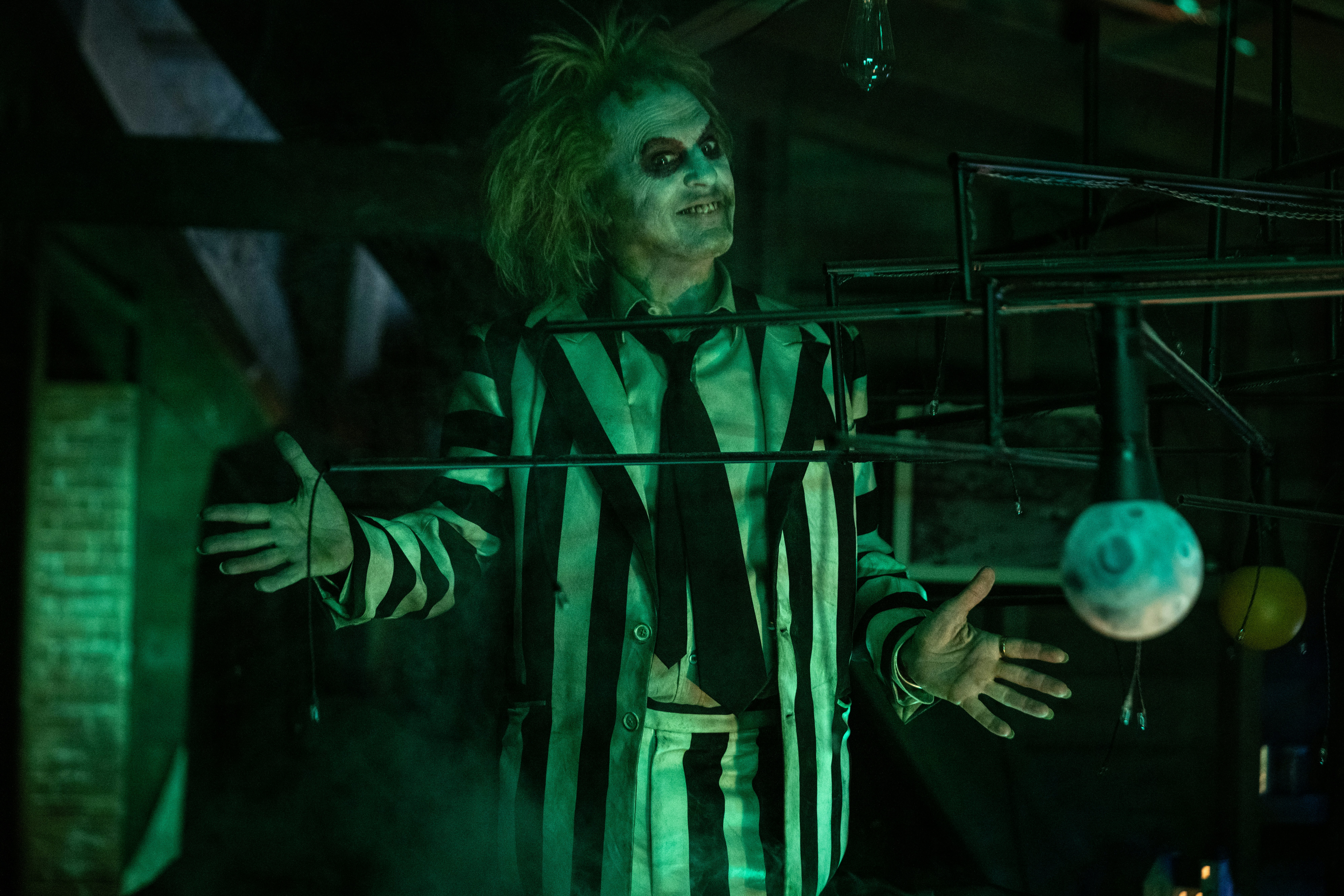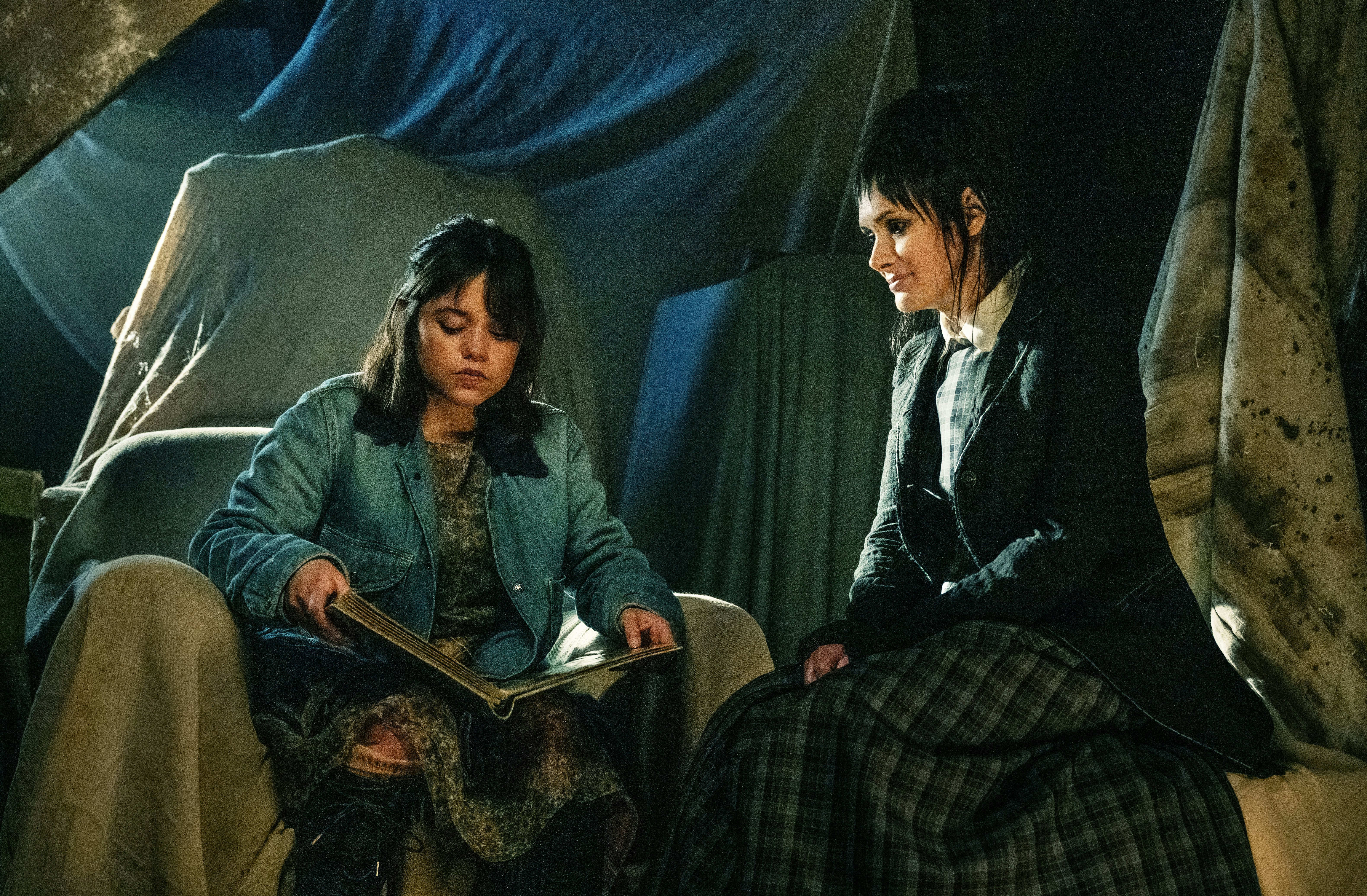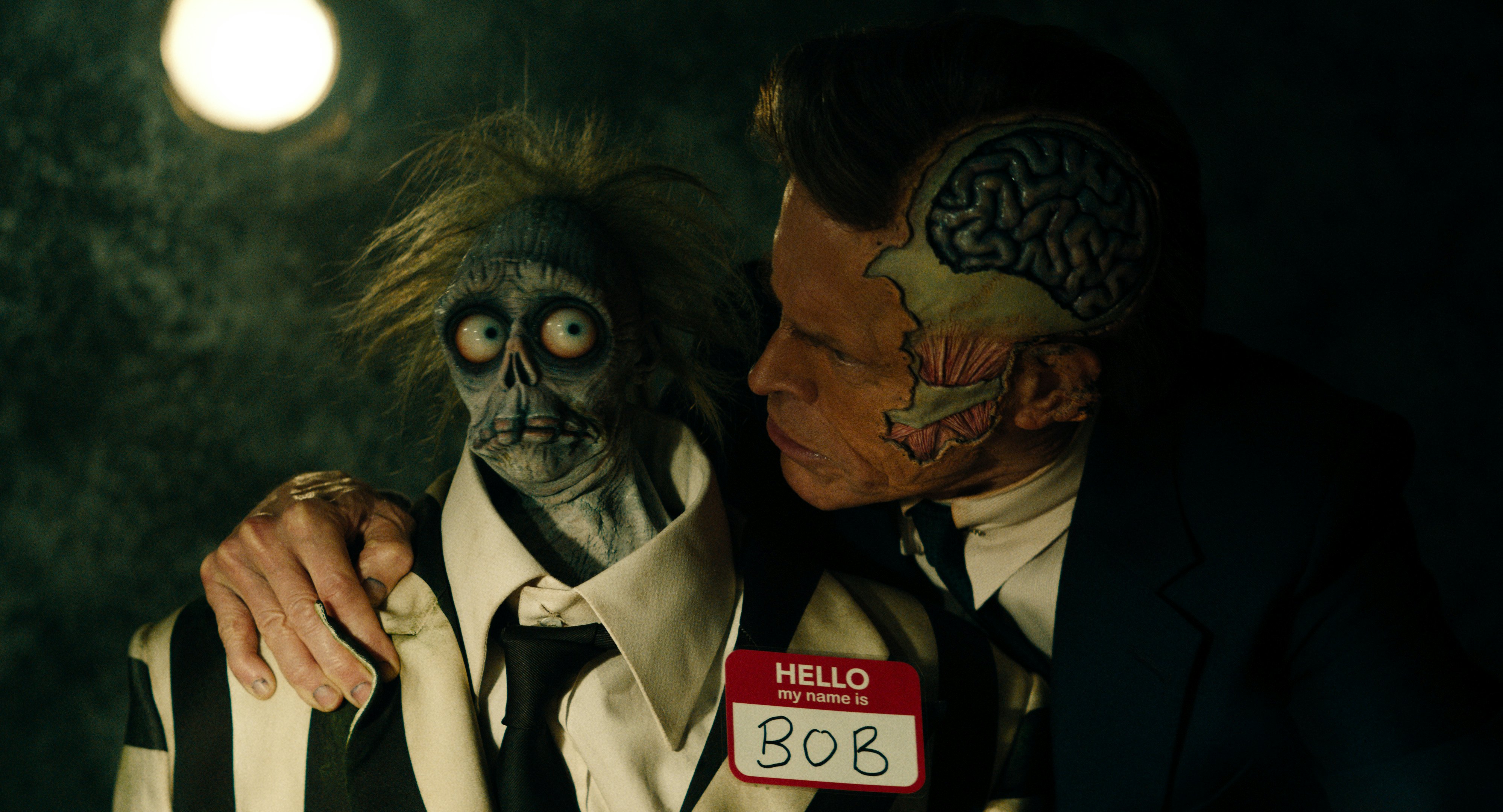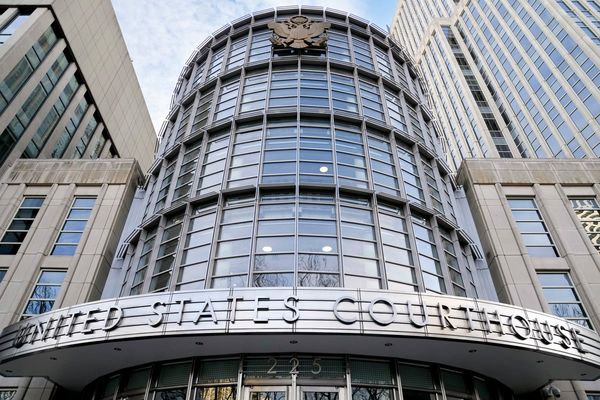
It’s no secret that Tim Burton’s recent films aren’t as great as they used to be. Since the mid-2000s, the Edward Scissorhands director has been all but sleepwalking through his career, with a series of uninspired fantasy films and Disney adaptations that felt like vague approximations of his singular gothic style. It’s one of the curses of being boxed into a specific visual brand — like his cohort Wes Anderson, Burton can never get away from being, well, Tim Burton.
So why not go back to one of his earliest, and most bizarre, successes? Burton’s 1989 classic Beetlejuice was the director’s first major commercial hit and the movie that cemented his signature style. To this day, it remains an eccentric high point for the director — wildly creative, shockingly crass, and a little bit weird for a mainstream family-friendly hit. Its terrifically tactile marriage of Burton’s macabre style with a wonderfully wacky, outsized performance from Michael Keaton helped create a cinematic icon that belongs in the annals of movie history, never to be touched again. But because we live in an era where IP rules all, Beetlejuice is back, and the result is, surprisingly, a total blast.

Beetlejuice Beetlejuice has all the cynical pretenses of the dreaded legasequel, but thanks to its dedication to the original’s gonzo practical effects and another top-tier performance from Keaton (who looks like he never took off that electricity-fried wig and striped suit), it’s the most energized film Burton has made in over a decade. Turns out that returning to the Netherworld was exactly what the director needed to get his creative juices flowing again.
Beetlejuice Beetlejuice takes place 36 years after the events of the 1998 original, with Winona Ryder’s Lydia Deetz now a renowned host of a ghost-hunting TV show. She and her stepmother Delia (Catherine O'Hara, fabulously channeling her Schitt’s Creek diva Moira Rose) haven’t set foot in the old Maitland house for years, but they’re brought back unexpectedly after Lydia’s father Charles (Jeffrey Jones in the original, who was wisely not brought back for the sequel) is slaughtered in a freak plane crash/shark attack. Lydia drags her estranged daughter Astrid (Jenna Ortega, comfortably at home as a sullen teen) back to the house to help clean it out, but their return accidentally unearths Beetlejuice, who is still intent on making Lydia his bride — especially now that his old ex-wife Delores (Monica Bellucci, sultry and sinister) has re-emerged to claim his soul forever.

It doesn’t take much to connect the dots between Lydia’s lost sense of self and Burton’s recent career. Lydia frequently proclaims herself a “sellout” and she’s haunted by visions of Beetlejuice stalking her in the real world. This arrested development becomes a clear metaphor for Burton’s creative rut.
It feels hacky for Ryder to be stuck again in her blunt-bang, birth’s nest goth look after all these years, but there’s a real heartbreak at the center of Lydia’s struggles. She’s stuck in an exploitative relationship with her producer boyfriend Rory (a slimy Justin Theroux), and Ryder’s choice of playing Lydia less as a disaffected spiritualist and more as a panicked, mentally unwell mother lends her more depth than she was afforded even in the original. Though Ryder’s performance somewhat recalls the panicked mania of Joyce in Stranger Things, it’s a relief to see her honing her chops outside of the Netflix show. Better yet, Ryder thrives opposite Ortega’s Astrid, a nonbeliever who scoffs at her mom’s career and never forgives Lydia for distancing herself after the disappearance of Astrid’s father (Santiago Cabrera). While Ortega gives the most low-key performance of the film, refreshingly playing a grounded climate activist and not a goth-girl clone of her mom, her unexpected teen romance plotline and her fraught dynamic with Lydia form the emotional core of the film, even as the antics get wilder and the stakes get more life-or-Afterlife.

Beetlejuice Beetlejuice’s most exciting innovation is its expansion of the Afterlife, whose inner workings and madcap characters become more prominent in Alfred Gough and Miles Millar’s sequel script. Burton emphasizes this world of ghoulish tedium through glimpses of a zombified, cleaner-guzzling janitor (Danny DeVito, in a brief cameo), a dilapidated dry cleaner, and a funky “Soul Train” train station that takes ghosts to the “Great Beyond.” One of the most enjoyable additions to the cast is Willem Dafoe’s Wolf Jackson, a former B-movie action star who clumsily leads the Afterlife Police Department with clichéd catchphrases and inspirational speeches written by his secretary.
But despite an expanding cast of undead ghouls, Keaton remains unmatched as Beetlejuice. He’s wild, he’s creepy, he’s impossible to look away from. The film even offers a Beetlejuice origin story, which Keaton sells in the most ridiculous way possible (hint: it involves a black-and-white Frankenstein-style flashback and flowery Spanish narration). It’s good to see Keaton back in another legacy role, but this time with the freedom to unleash his charisma in all its outlandish glory. It’s no secret Keaton had a hand in creating a lot of Beetlejuice’s weirdo personality as we know it, and so it makes sense that Keaton’s reunion with Burton is what may finally give the director his mojo back.
The sequel works thanks to Keaton’s no-holds-barred performance. But it's only a true comeback for Burton because Beetlejuice has always been about the director getting in touch with his freakiest, most unhinged instincts. Beetlejuice Beetlejuice may have been just what Tim Burton needed to bring his career back to life.







